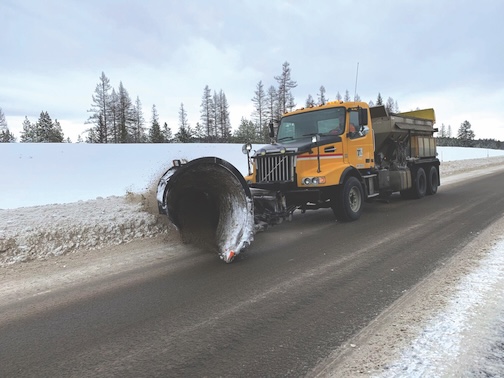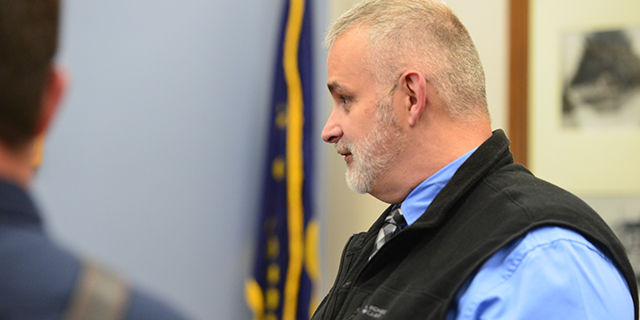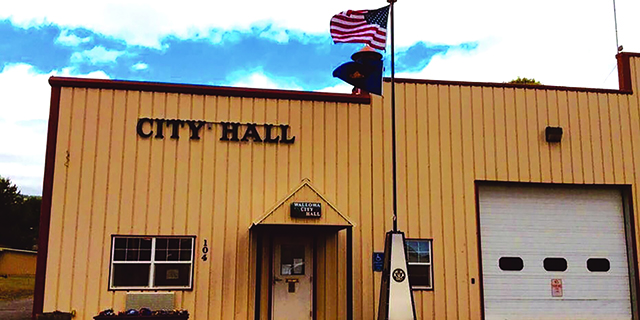Democratic candidates for governor participate in forum in Sunriver
Published 4:15 pm Sunday, May 1, 2022

- Democratic candidates running for governor Tina Kotek, from left, Tobias Read and Patrick Starnes participate in a forum hosted by the Democratic Party of Oregon in Sunriver on Sunday, May 1, 2022.
The Democratic Party of Oregon hosted a live forum in Sunriver on Sunday, where three Democratic candidates running for governor answered a series of questions ranging from how each candidate would deal with homelessness, equity, education reform in the wake of COVID-19, campaign finance laws and bridging the divide between rural and urban Oregonians.
Trending
The forum came at the tail end of the Oregon Summit, an annual gathering of the Democratic Party of Oregon that started Friday.
Former House Speaker Tina Kotek, state Treasurer Tobias Read and gubernatorial candidate Patrick Starnes were present and answered questions before an audience at the forum, held at Sunriver Resort. The forum, moderated by the chair of the Democratic Party of Oregon, Carla Hanson, leads up to the primary election on May 17 and is available to watch online.
There are 19 Republicans and 15 Democrats on the primary election ballot.
Trending
Tina Kotek
Kotek, who served as house speaker for nine years, said part of creating more jobs providing a living wage in Oregon is focusing on the clean energy sector, which also helps address climate change.
She touted investments in education through legislation such as the Student Success Act, which invested billions of dollars in education after it was passed by the House in 2019. Now, coming out of the COVID-19 pandemic, Kotek said, it is even more crucial to invest in students’ and make sure they have the social and emotional support they need to succeed.
“As governor and as the superintendent of public instruction, my job is to make sure that those dollars follow through with what was intended,” Kotek said. “To make sure we have increases in graduation and make sure all students have what they need.”
Kotek pledged to seek to make Oregon a state that is inclusive of all people, and as governor she would work to root out systemic racism.
“As governor, it’s about making sure all of our systems are taking a hard look at systemic racism,” she said. “Our schools, our healthcare system, economic development, making sure we are moving forward as a state where everyone can be successful.”
Kotek said she vows to solve the homelessness problem if elected governor, a problem she called “unacceptable.”
“You can do certain things in the legislature, but until you are governor, to bring people together and solve this, we are not going to get ahead of this problem,” she said. “It is absolutely critical this be the top priority for the next governor, and I’m the only one here that has the experience to do that work.”
Tobias Read
For Read, growing Oregon’s economy requires making the state attractive to businesses, while at the same time preparing for a future with climate change.
When it comes to reforming the education system in the wake of COVID-19, Read, who has two children in the Beaverton School District, said learning from the pandemic and investing in education is crucial.
“I think we all have to learn the lessons from the pandemic and commit that closing schools is an absolute last resort,” he said. “We know what happens when a school is closed, it is students that suffer, their learning, their mental health, families, economic circumstances.”
Providing universal pre-K, increasing students’ and educators’ mental health capacity and ensuring there are qualified educators teaching children are all priorities for Read.
As governor, Read said he would work to create a team around him that is reflective of Oregon’s diversity in addition to working to close the wealth gap.
“We can’t assume that people who are facing all ranges of challenges can navigate the bureaucracy and barriers we have, intentionally or unintentionally, put in front of them,” he said.
With homelessness, getting faster at setting up transitional and emergency shelters that include wraparound services people need such as mental health assistance and help with substance use disorders is key, Read said. Building permanent housing is another way he said the next governor could address homelessness.
“I think we have to start by acknowledging what we are doing right now isn’t working,” Read said of government’s approach to homelessness in Oregon. “There is nothing compassionate about letting people continue to live in these unsafe and unhealthy conditions.”
Patrick Starnes
Starnes, a cabinet maker and home restorer who grew up near Roseburg, said increasing Oregon’s capacity to process its timber resources into finished wood products is a good way to start growing the economy. He also would hope, as governor, to follow California’s example of shading irrigation canals with solar panels, something he said could also create well-paying green jobs.
On the question of education reform, Starnes touted his 10-year track record serving on school boards, and said he believes school board experience should be required of all lawmakers in Salem.
“I feel that even pre-pandemic, we were having to transition in our education system,” he said. “Online learning, competitive school districts taking each other’s students. So, I’m excited about the future of learning.”
Starnes, being what he referred to as a “rural Democrat”, is well equipped to work side by side with Republicans, he said. Working with the other side, he said, is an important step not only in closing the rural and urban divide, but it also moves toward creating equity for Oregon’s people of color.
“Sadly, number 45, who just was out of office, we will not say his name, has legalized bullying,” Starnes said, referring to former President Donald Trump. “And he pretty much legalized racism again. And so we have to bring Oregonians back together to fight that.”
He said bridging the gap between Democrat and Republican is of increasing importance and in the end, both sides of the political spectrum can get behind some of the same issues, such as mitigating the effects of ongoing drought and wildfires.
“It’s crucial that we bring Oregonians back to one Oregon,” he said. “Because we are all tired of the divisiveness.”









